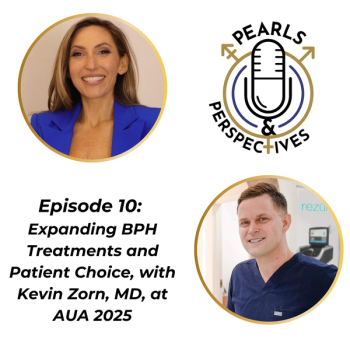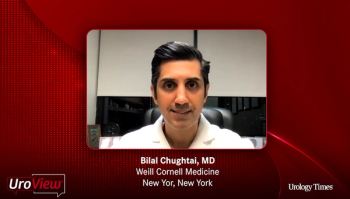
Saw Palmetto Extracts in BPH and LUTS: Practical Advice on Patient Education
Closing out his discussion on saw palmetto extracts in benign prostatic hyperplasia and lower urinary tract symptoms, Bilal Chughtai, MD, shares practical advice for physicians.
Episodes in this series

Transcript:
Bilal Chughtai, MD: When it comes to supplements and how to talk to patients about them, it's a very complex discussion. Now, there are some patients who give you a very unique opportunity to build a very strong relationship through discussions on supplements. You can go ahead and shut that door and say, “Hey, look, the AUA (American Urological Association) doesn't recommend them, they don't work, and that's it. I don't recommend them.” A lot of times, you then close that opportunity to build a relationship with that patient. A condition like enlarged prostate with LUTS is known to progress in patients over time. When it comes to supplements, it's a unique opportunity for us, as urologists, to start talking about recommendations. Suggesting high-quality supplements that have been independently tested by the USP (United States Pharmacopeial Convention) is important.
When it comes to supplements, there's also a unique opportunity to allow patients to use the supplements in a way that you can monitor any adverse effects and progression of the patient’s condition. When it comes to supplements, as physicians, it's important for us to have some understanding of them. We should be able to guide our patients, to some degree, on what supplements have the most promising data or have the highest chance of working. At the same time, we must ensure that we're following the standard of care for our patients and providing high-quality care for them.
Transcript edited for clarity.
Newsletter
Stay current with the latest urology news and practice-changing insights — sign up now for the essential updates every urologist needs.




